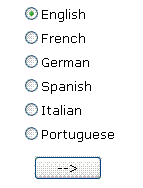Globalization and Localization | C#
Globalization and localization are essential aspects of software development in the .NET framework. Globalization refers to the process of designing applications that can be adapted to various cultures and regions, allowing them to be used by a diverse range of users worldwide. Localization, on the other hand, involves customizing an application to a specific culture or region by providing localized resources such as language translations, date and time formats, number formats, and other culture-specific elements.

Globalization and Localization
In .NET, globalization and localization are facilitated through the use of features and APIs provided by the framework. Developers can use the following techniques to achieve globalized and localized applications:
Resource FilesResource files (*.resx) are used to store localized strings, images, and other resources. By separating resources from the code, developers can easily swap resource files to support different languages and regions.
Culture-Specific Formatting
.NET provides various formatting classes and methods to handle culture-specific formatting requirements for numbers, dates, times, currencies, and more. This allows developers to display information in a format that is familiar and appropriate for the user's culture.Localization Tools
Visual Studio offers built-in tools that assist in the localization process. These tools streamline the creation and management of resource files, making it easier to maintain and update translations.Satellite Assemblies
Satellite assemblies are used to store localized resources separately from the main assembly. This allows for efficient deployment and maintenance of localized resources without modifying the core application.Globalization Settings
.NET provides APIs to access and modify globalization settings such as current culture, UI culture, and calendar settings. These settings can be adjusted programmatically to provide a localized experience to the user.
Conclusion
By adopting proper globalization and localization practices in .NET development, applications can cater to a diverse user base, adapt to different cultures and regions, and provide a seamless and user-friendly experience. It enables developers to create software that effectively communicates with users, respects cultural norms, and supports language preferences, ultimately improving user satisfaction and expanding the reach of their applications.
- C# Interview Questions (part-1)
- C# Interview Questions (part-2)
- C# Interview Questions (part-3)
- Difference between a Debug and Release build
- Difference between normal DLL and .Net DLL
- What is an Interface in C#
- Difference between Abstract Class and Interface in C#
- Difference between a thread and a process
- Delegates in C# with Examples
- Differences between a control and a component
- Differences between Stack and Heap
- What is .Net Reflection
- What is .Net serialization
- Difference between web service and .net remoting
- Difference between managed and unmanaged code
- Difference between Shallow copy and Deep copy
- Use of System.Environment Class
- What is the difference between private and shared assembly?
- Does the .NET have in-built support for serialization?
- How to properly stop the Thread in C#?
- Why are there five tracing levels in System.Diagnostics.TraceSwitcher?
- Why is XmlSerializer so slow?
- How many types of Jit Compilers?